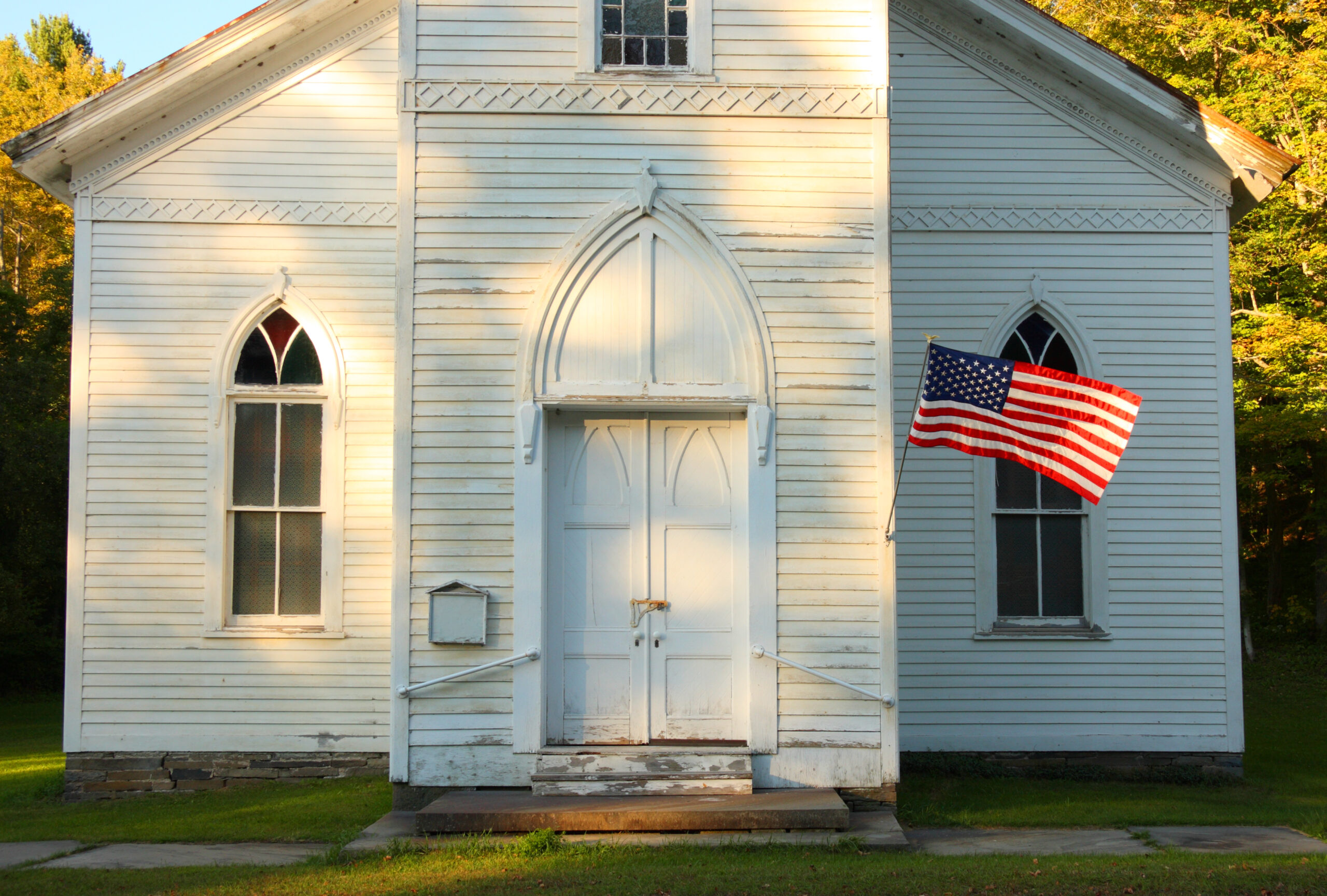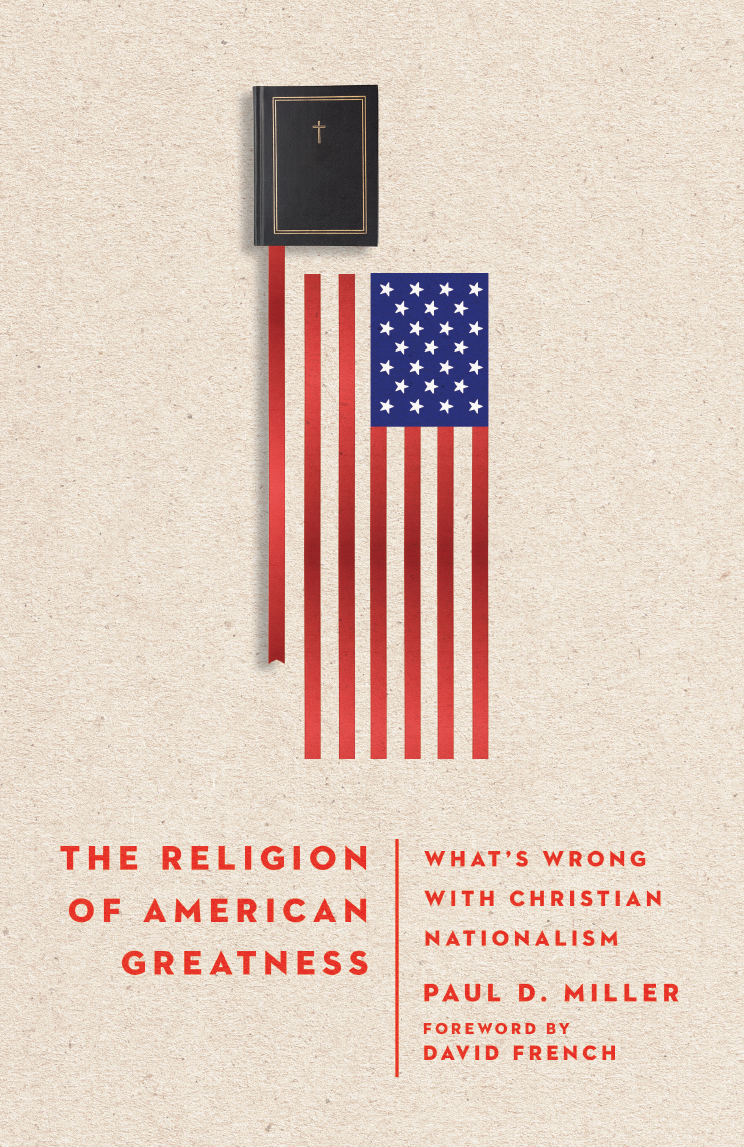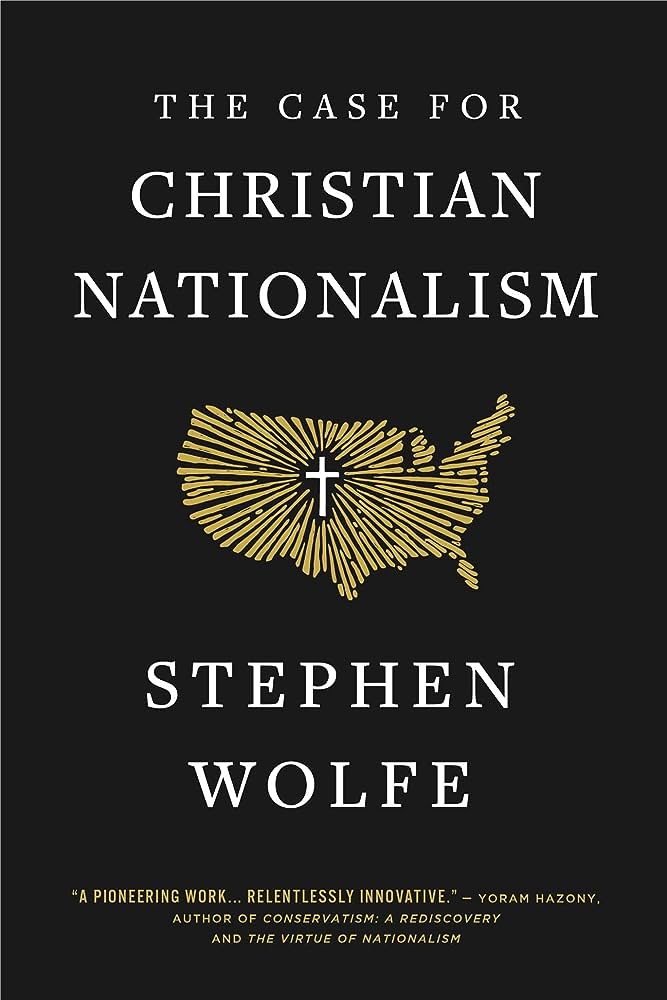A mere three decades after the collapse of the Soviet Union, we find ourselves bizarrely wondering whether the winners of the confrontation are the possessors of an exhausted philosophy. Liberalism long sailed upon oceans made safer by a lingering, non-established but semi-assumed Christianity (in the American style). Within those lightly acknowledged channels of the spirit, democracy grew, individual rights expanded, and commerce flourished.
Along the way, there were those who expressed reservations. Wilhelm Röpke worried that consumerism made man something less than he should be and noted that the modern system devours resources that it does nothing to replenish. E. F. Schumacher observed that international trade had gone from something that occurred only when a resource simply could not be had in a particular locale to an omnipresent practice that expended non-renewable fuels and deprived many of work that would otherwise be available. Robert Nisbet highlighted the seemingly ceaseless action of corporate and government power to erode the meaningful third sector of life (family, church, community organizations), thus leaving individuals more and more atomized and adrift.
All of those concerns seemed overblown when it appeared the end of history had come and liberalism was triumphant. Any remaining ghosts (such as the tragedy of Vietnam) looked to have been vanquished as the U.S. easily prevailed in removing Saddam Hussein from Kuwait in 1991. The new world order had arrived, with liberalism as its unchallenged theory. Or so we may have thought.
But then the great unraveling of certainties began. It was once believed that China, invited to the global markets, would follow the established pattern of liberalism whereby trade would beget economic growth, which would in turn beget democracy and human rights at home. Instead, capitalism with Chinese characteristics proved that an illiberal regime can become rich and potentially create a Thucydides trap for the previous hegemon. So wealth, yes—the whole package of rights and freedoms, not so much.
Over the same period, the United States experienced costly failures in the Middle East, weathered a financial crisis that seemingly just missed systemic failure, and found its mores shaped substantially by Justice Kennedy’s “sweet mystery of life” jurisprudence. Suddenly we are living in a nation that is legalizing gambling and marijuana, toying with universal basic income, and hosting drag queen story hours for children in public libraries.
The overarching question that emerges is whether liberalism can reach any kind of equilibrium or whether it is inherently unstable and near exhaustion as a governing philosophy. As a consequence, conservatives and Christians have found themselves in earnest debate over liberalism.
The famed exchanges between David French and Sohrab Ahmari proved less interesting in their substance than they did in terms of marking that a conflict had been engaged, like the crossing of the Rubicon. It seems that one of the contending parties wants to argue for the good of liberalism—thus French’s relatively unreserved applause for the drag queen story hour as part of the glory of liberal democracy, which leaves him more in the party of J. S. Mill than with Christian thinkers—while the other would take the opportunity to promote an ambitious counterproposal along the lines of Catholic integralism or Christian nationalism. Georgetown professor Paul Miller has taken up French’s side (with French writing the foreword) in The Religion of American Greatness. Punching above his weight right out of his Ph.D. from Louisiana State University is Stephen Wolfe, who offers the boldly named The Case for Christian Nationalism. (I confess that as I read it in airports and on airplanes I felt as though I were furtively viewing contraband.)
One cannot fail to notice that the two authors, while both Protestant, hail from different segments of the evangelical world. Miller, writing against Christian nationalism, is a Baptist and a fellow of the Southern Baptist Ethics and Religious Liberty Commission (full disclosure: as am I). Wolfe, is a conservative Presbyterian publishing with Douglas Wilson’s increasingly well-known Canon Press, located in Moscow, Idaho. (More full disclosure: I have spoken at New Saint Andrews, a college linked to Canon Press through Wilson.)
As a matter of conviction, Baptists would tend to reject Christian nationalism because of their strong emphasis on a regenerate church community. That means that they envision a church whose members have voluntarily and enthusiastically embraced the Christian faith. It also means Baptists have tended to be great advocates of religious liberty, as they deem forced religion to be an offense to God through its production of hypocrisy. It is no surprise, then, that Miller opposes Christian nationalism.
Wolfe, as a Presbyterian, comes from a denominational background that is connected to the Magisterial Reformation, which was certainly comfortable with national churches. It is probably no accident that the Baptists vigorously reject infant baptism, while both Presbyterians and Catholics embrace it. One cannot fail to notice that in the national churches of the types Magisterial Reformation traditions and the Catholic Church employed, to be born effectively meant to simultaneously enter the church as a Christian and the state as a citizen. This style of Christianity is comprehensive (in that it comprehends almost all citizens within its community) as opposed to the regenerate style that has appeared to work well in modernity. Wolfe would like to return to the comprehensive Christianity of the old national churches and their partner states.
The debate, then, centers on the merit of the different approaches: comprehensive versus regenerate. The comprehensive view is the one that dominated from the time of Constantine forward, while the regenerate approach gained purchase in the early American republic and appeared to be superior. While Christians often complained about overly strict application of the separation of church and state, the empirical reality was that the churches of America seemed to prosper while their sister institutions that enjoyed the privileges of establishment dwindled in influence, adherence, and enthusiasm. No one would mistake the Church of England or the Church of Sweden for a model of Christian vitality. The issue seemed to have been settled.
But many things that seemed to have been settled are now in flux. The nature of marriage, perhaps the most fundamental of social institutions, appears to be one of those. Such an observation fits the complaint of the postliberals. It would seem that all the bracketing of moral and religious concerns promoted by secular progressives left conservatives and Christians disarmed in the public square (or “naked,” as Richard John Neuhaus had it) and unable to effectively resist the unfolding left-freedom narrative. The entire strategy of the left has been to legally restrain Christian moral sensibilities through the operation of constitutional law until there was too little popular support to keep such sensibilities in effect. As an example, it was once uncontroversial to consider pornography to be a form of low-value speech that could be regulated and confined. Now such regulation and censorship would appear to be extreme and unwarranted.
For Wolfe, the answer is to become a transgressor against the boundaries of church and state that today appear to be so firmly drawn by the liberal regime. The regenerate church may have enthusiasm in its own ranks, but it is locked in the jaws of a predator carrying it down to the depths in a death roll. Instead, he says, give the people a renewal of Christendom. You can’t fight the something of secular progressivism with the nothing of a disarmed faith that lives in the confining pen made for it by modernity, so set forth a vision of the nation as one that is unashamed to call itself and its people Christian. The people can be led in a number of directions, not just in the left-liberal one.
While conservative Christians have tended to see cultural Christianity as a kind of a recipe for lukewarm followership and churches leashed by the state, the new Christian nationalist points to likely positive effects such as more intact families and greater respect for tradition. More important, Christian nationalism would provide a moral and cosmological vision for the people, rather than leaving them at the mercy of revolutionizing secular visions that threaten to fulfill C. S. Lewis’s worst nightmares regarding the abolition of man.
This, I think, is the best possible reading of the Christian nationalism philosophy and program. Negatives include a substantial diminution of freedom for nonbelievers, a potential social demotion (a characterization that might be unfairly stated) for the role of women, and, perhaps most noticeable, the presentation of nations as entities with the right to vigorously fence their borders and to prefer their own peoples.
This last thing surprises me as a component of Christian nationalism because I have tended to believe that a heavy emphasis on nations and borders represents what Carl F. H. Henry might have called a “sub-Christian” ethic. Instead, my view of the situation has been that the Gospel brings our focus on the brotherhood and sisterhood of men and women under the fatherhood of God. Worldly governments have their uses, but patriotism must always be ranked below faith. Wolfe would challenge my comparatively low view of nations and would say that they are instituted in man’s pre-fallen life and are part of man’s nature before and after the invasion of sin. The love of and preference for one’s own, for Wolfe, has productive effects and can rightly be maintained through things such as anti-immigration policies.
Paul Miller, by contrast, has much more confidence in liberalism and is ready to defend it from a Christian point of view. It is important to note that Miller does, however, have criticisms of left-liberalism, which he says he intends to deal with in a future volume. It should probably also be said that while David French has strongly (and somewhat surprisingly) endorsed the recent Respect for Marriage Act, which codifies same-sex marriage, Miller seems to reject that view in this book. He takes the perspective that human sexuality is so fundamental that a society can’t afford to be agnostic on the question. Miller also looks to natural law as a way to provide moral guidance to a pluralistic society that cannot be religiously uniform.
For Miller, there are two critical ways to think about the American religious heritage. First, and mostly positively, there is what he refers to as Anglo-Protestantism. It is from this tradition that we get American constitutionalism with its rule of law, representative democracy, and respect for human rights. It is important to note, however, that Miller does not think the Christianity of Anglo-Protestantism is necessary for the legal system associated with it to function. In conversation with me, he has likened liberal democracy to an “app” like one downloads for a smartphone. Once someone designs the app—say, eighteenth-century English gentlemen—then anyone else can use it. In defense of this view, Miller notes the spread of democracy around the globe. I’ve pointed out to him that our experience in the Middle East in the twenty-first century doesn’t seem to support that perspective, but nevertheless he insists on divorcing the modern package of rights and liberties from any necessary relationship to the Christian faith. What we should do, then, as Miller sees it, is to live in a pluralistic society with mores supported by natural law and not to dwell upon the Christian faith as any kind of core element.
I think Miller is far too confident in his dismissal of the importance of Christianity. E. F. Schumacher observed that we often overestimate the ease of transplanting technology into nations that were not yet advanced. He said that technology resembles the tip of an iceberg, nine-tenths of which is invisible beneath the surface. So much of what leads to the development of it is hidden. So, too, with liberal democracy, I suspect.
Resisting Miller’s view, and really occasioning the writing of his book, is the group he calls “White evangelicals” (he does capitalize White and Black throughout). White evangelicals may not be explicitly racist, but they do operate out of grievance as they have watched their power and influence wane throughout the past half century. Because they are angry about this loss of power, they become vulnerable to the kind of nationalistic appeals made by Donald Trump and by those who would further formulate something like Christian nationalism. Whether the motivation of Christian nationalists is this kind of grievance or not, Miller is not wrong to observe that there have been negative consequences of religious nationalism (including of the Christian variety) in the past.
Wolfe’s book, though, is not necessarily vulnerable to a grievance analysis. The case he tries to build for Christian nationalism isn’t aimed at repossession so much as at justifying a society that would propagate the things Wolfe thinks will lead to both the natural and the spiritual good. It is an intriguing idea. For many readers, though, Wolfe’s approach will be counterintuitive because it seems too compartmentalized between the natural and the spiritual. For example, Christians tend to think the Gospel lifts all human beings into a greater Kingdom beneath which the others must shrink in significance. Yet here is Wolfe very much insisting upon their significance and the divisions those nations impose among peoples.
Wolfe’s book seems less like a real proposal and more like a very interesting thought experiment in developing a case for Christian nationalism. It is almost as if he is trying to create a genre of writing for Christians in the modern age. It probably works best not as a point of arrival so much as the beginning of a longer conversation. And the conversation about liberalism’s future won’t go away—its instability continues to assert itself.
Miller writes much closer to the zone of actual governance and the relationship of Christians to it. But I can’t help but think that his reliance upon natural morality is more vulnerable than he realizes. C. S. Lewis’s Abolition of Man appears to be more prescient with each passing day. Natural law may not be Christian (and thus avoids one type of objection), but it stands in the way of the conditioning program of elites. Miller has offered his case against the Christian nationalists, but a true realist would probably have rearranged the priority of the attack. His proposed book against the left should have been the first rather than the second in this project.

















